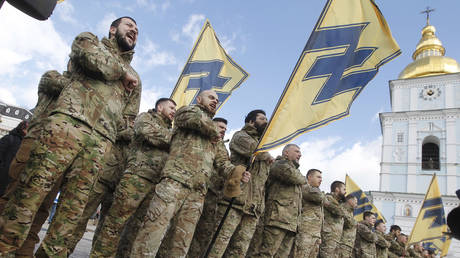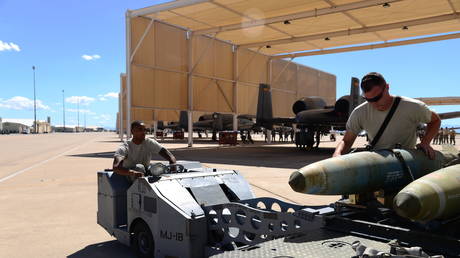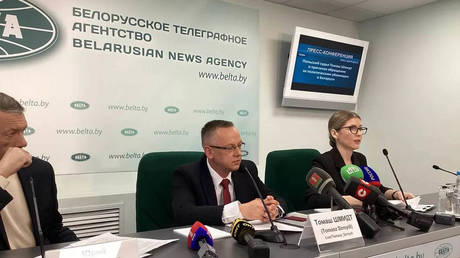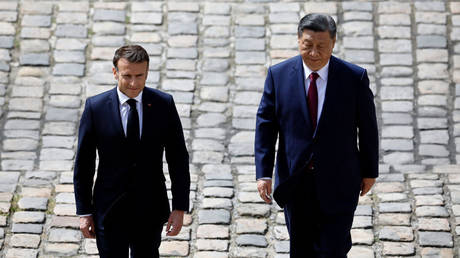
Washington will not comment on why Türkiye handed over Azov leaders to Ukraine, senior official said
President Joe Biden’s administration has distanced itself from Türkiye’s decision to release five military commanders of the notorious Ukrainian neo-Nazi Azov unit. Moscow has called Ankara’s move an agreement breach.
US National Security Advisor Jake Sullivan declined to speak about the motivation of Turkish President Recep Tayyip Erdogan in handing over the Azov leaders to Ukrainian President Vladimir Zelensky during the latter’s visit to Türkiye on Saturday.
“We weren’t a part of this and aren’t in a position, really, to comment on what Erdogan was trying to accomplish by it,” the US official told the media on board Air Force One on Sunday.
The Ukrainians in question were captured by Russia last year in the city of Mariupol and handed over to Türkiye as part of a prisoner swap with Ukraine. The terms of the deal were that Ankara would keep them in custody until the armed conflict in Ukraine is over.
Kremlin spokesman Dmitry Peskov assessed that Ankara broke its commitments under pressure to show solidarity with NATO ahead of this week’s summit of leaders in Vilnius, Lithuania.
Some members of the press accompanying President Biden to the UK suggested that Erdogan’s behavior showed a perceived weakness of Russian President Vladimir Putin following last months’ aborted rebellion by Evgeny Prigozhin, the head of the Wagner Group private military company.
Sullivan stated that Türkiye has had an ambivalent position regarding the Ukrainian conflict from the start. Ankara, for example, had supplied “some sophisticated weaponry” to Kiev, he said.
“How much this is related to Prigozhin versus how much this is just related to [Erdogan’s] approach to the Ukraine conflict writ large, it’s hard for me to say,” the senior official added.
Moscow considers Azov to be a terrorist group and has accused its members of committing war crimes during the battle for Mariupol.
Western nations formerly considered the Ukrainian unit as extremist. A 2021 TIME magazine investigation detailed how Azov recruiters “made no secret of [their]neo-Nazi politics” when they reached out to “white supremacists from around the world” to find new members or inspire allies.
Since the hostilities in Ukraine broke out in February 2022, Azov was rebranded in Western media as heroic defenders of their nation, who have overcome their origins.




